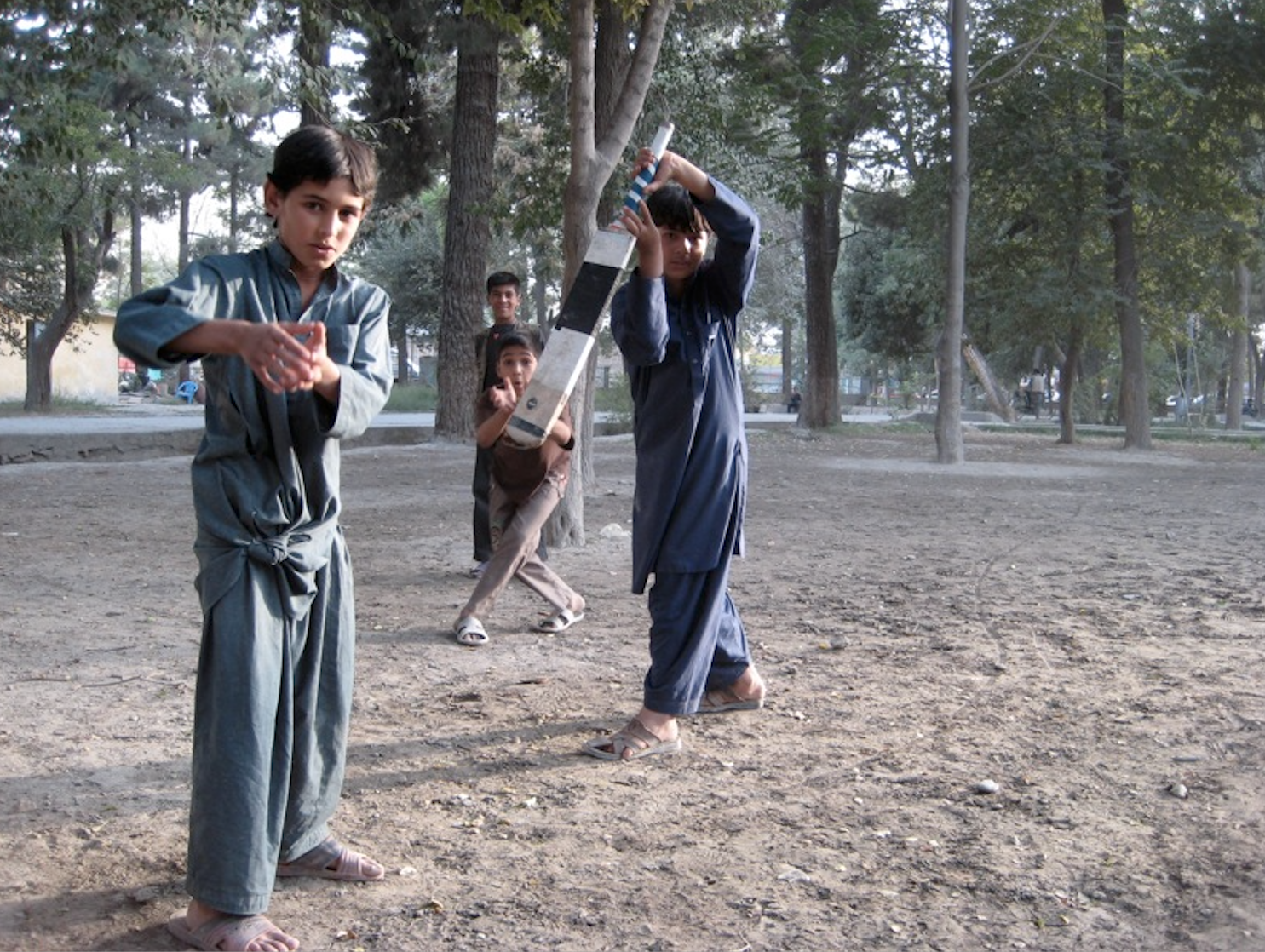Off target
A sporting boycott of Afghanistan would stifle a symbol of resistance to Taliban rule, writes Peymana Assad
Sports – and international sports in particular – tend to become embroiled in the issues of the day. In 1980, for instance, when the Soviet Union invaded Afghanistan, the US boycotted the Moscow Olympics after the Olympic Committee refused President Carter’s request to change the venue. Around the same time, my father, then a member of the Afghan National Hockey Team, recalls how mujahideen commanders – backed by the US and Pakistan against the Soviets – regularly congratulated the team on international matches and sent messages of support.
Today, Afghanistan once again sits at the intersection of sports and global affairs. With the return of the Taliban, there are calls for a sporting boycott – specifically of the cricket team, as urged by Tonia Antoniazzi MP before England’s match on 27 February. However, I believe any boycott would be a mistake, ignoring as it does the symbolic value of cricket for those resisting Taliban rule.
Afghan cricketers defy the Taliban
Under the Taliban’s first rule, cricket was banned. After2001, Afghanistan’s cricket team formed with no funding, playing under the tricolour flag – a symbol millions fought under to free Afghanistan from colonialism. Today, the team still raises the tricolour flag and sings the national anthem – both now banned by the Taliban. Many Afghans have been imprisoned or killed for doing the same. The team is even prohibited from playing inside Afghanistan – cricket is a ‘sport of the infidels’.
When the Taliban took power in 2021, Afghanistan was set to play in the T20 World Cup. The Taliban demanded the team use their white flag and replace the anthem with an Islamic prayer. The players refused, saying they’d rather withdraw. After intervention from the International Cricket Council (ICC) and Qatar, the Taliban backed down.
In their first match post-Taliban takeover, Afghanistan played against Scotland, raising the tricolour flag and singing the anthem. Captain Mohammad Nabi was in tears. The team’s success is an act of defiance, proving that the ideals Afghans fought for live on. Afghan cricketers also face the same oppression as the rest of the population. They live in Afghanistan, and their own daughters are denied education – just like millions of other Afghan girls.
Publicly opposing the Taliban is a death sentence
Some argue Afghan cricketers should publicly denounce the Taliban. But the Taliban are not just an authoritarian regime – they are an armed extremist group that kills those who defy them. Even families of journalists and activists who speak out have been targeted.
Despite the risks, players like Gulbadin Naib have made silent but powerful impact. He donated his man of the match winnings to Afghan flood victims in the north of the country, highlighting the Taliban’s refusal to help disaster-stricken areas. Other cricketers support Afghan causes with their earnings.
A boycott would feed dangerous ethnic divisions
Separatist diaspora groups have exploited the boycott campaign to fuel ethnic tensions, misleading British MPs. They claim that since both the Taliban and much of the Afghan cricket team share the same ethnic background, the team must be a PR tool of the regime.
This argument is not only false but dangerous. Afghanistan’s cricket team was founded after the fall of the first Taliban regime in 2001 and has always represented the country as a whole. The claim echoes outdated colonial narratives that associate Pashtuns – the largest ethnic group in Afghanistan – with extremism, ignoring the fact that past Pashtun leaders, such as King Amanullah Khan and Prince Daud Khan, championed women’s rights and education. Holding Afghan cricketers accountable for the Taliban’s actions solely because they are Pashtun amounts to collective punishment. Pashtuns themselves are also suffering greatly under the Taliban’s rule.
When the British Chargé affairs takes pictures with the Taliban, standing next to their flag and smiling with them, it’s not considered propaganda. But when the Afghan cricket team does the same to ensure they can continue playing, critics accuse them of being Taliban puppets. The hypocrisy is rife – we need to hold our own government officials to account before pointing fingers at Afghans forced to survive under a brutal regime.
Boycotting the men’s team won’t help Afghan women’s cricket
A key argument for boycotting the men’s team is that the Taliban has erased Afghan women’s cricket. But instead of punishing the men’s team, efforts should focus on supporting Afghan women’s teams in exile. The issue is not the participation of the Afghan men’s team – it’s the Taliban’s repression.
A simple solution exists: The ICC can invest in Afghan women’s cricket in exile, providing financial and logistical support so that they can compete internationally. This would send a direct message to the Taliban that banning women from sports is unacceptable.
Currently, the ICC doesn’t recognise the Afghan women’s cricket team (currently in exile in Australia) because Taliban laws inside Afghanistan ban women from sports. But if a majority of countries in the world do not recognise the Taliban as the legitimate government of Afghanistan, what is stopping the ICC from making a far more powerful statement than any boycott of the men’s team?
Joy as a form of resistance
Throughout history, joy has been an act of resistance. The Taliban enforces a joyless rule – banning music, books, and free thought. Cricket, and the symbols it upholds, represent resilience and defiance. Every time the Afghan flag is raised, every time the anthem is sung, it reminds Afghans that their identity and history cannot be erased. British MPs may dismiss this argument, but for Afghans, seeing their flag at international events offers a rare glimmer of hope. Just look at the celebrations when Afghanistan knocked England out of the ICC Champions Trophy on February 27 – fans inside Afghanistan, in exile, and even in Pakistan’s Gaddafi stadium erupted with joy.
A boycott sends the wrong message
Some argue that even if a boycott doesn’t force change, it still signals opposition to gender apartheid. But the world has already normalised the Taliban in far more significant ways, including the signing of the Doha deal, which is a surrender deal in the eyes of many Afghans; continuing financial aid to the Taliban from the US and Europe; the UAE and China accepting Taliban ambassadors; and European governments shutting down Afghan embassies, making it harder for exiled Afghans to get consular support. In September 2024, the Afghan embassy in London closed – according to the ambassador, at the request of the new Labour government.
The Taliban won’t care if Afghanistan is banned from cricket. Indeed, they see cricket as the enemy. A boycott would only isolate ordinary Afghans while international—governments cosy up to the Taliban regime.
Afghanistan needs real action, not gestures
If the international community is serious about holding the Taliban accountable, it should:
- Recognise gender apartheid at the International Court of Justice.
- Issue international criminal court arrest warrants for Taliban leaders and their enablers.
- Impose travel bans on Taliban officials and supporters.
- Refuse to recognise the Taliban as Afghanistan’s legitimate government.
- Impose economic sanctions and cut off aid that benefits the Taliban.
If sporting bodies want to help, they should officially recognise Afghan women’s teams in exile and provide them with financial and logistical support to play.
A boycott of the Afghan men’s cricket team won’t punish the Taliban – it will punish athletes who have defied them. It will weaken a nation that overwhelmingly rejects the Taliban and allows the international community to substitute real action with empty gestures. Afghanistan deserves better.
Image Credit: DJ Horton via Creative Commons

